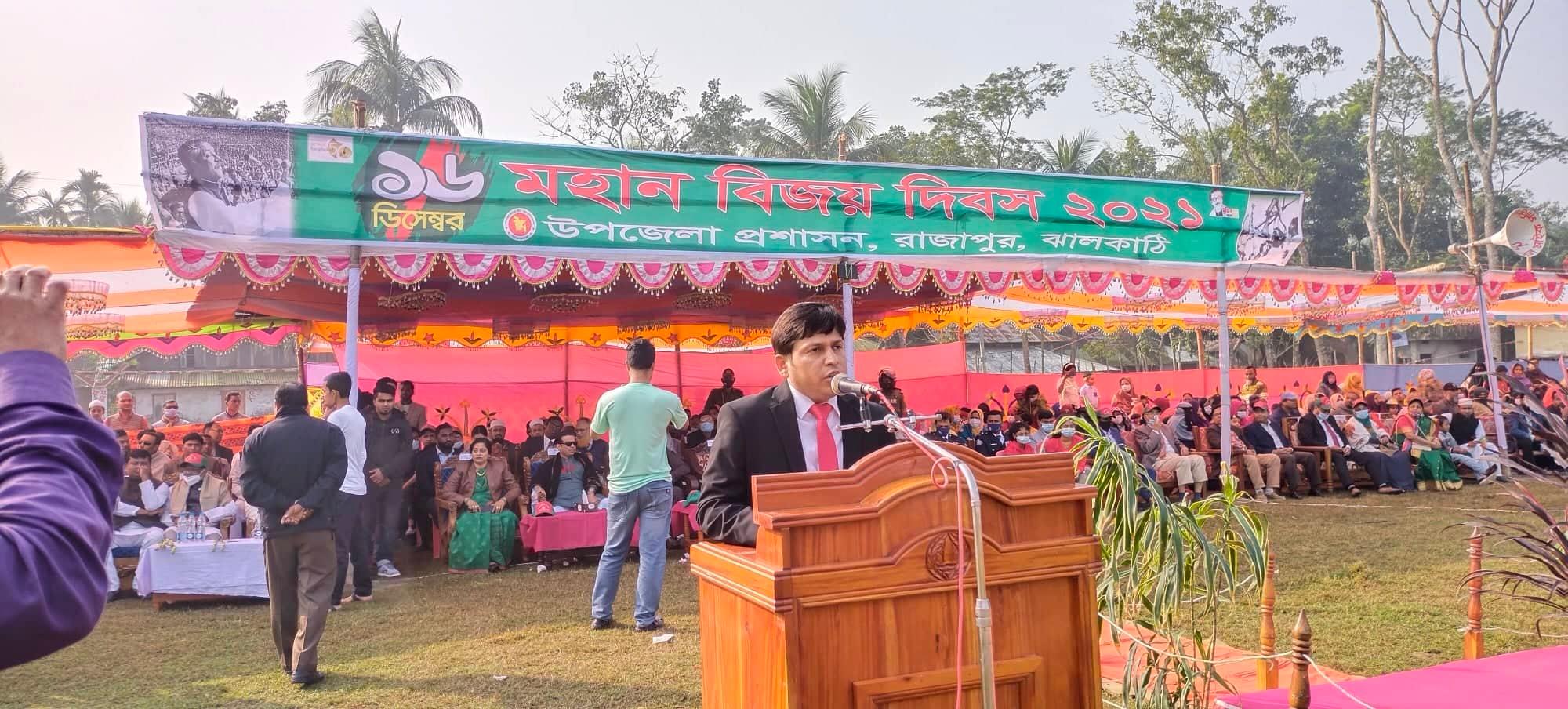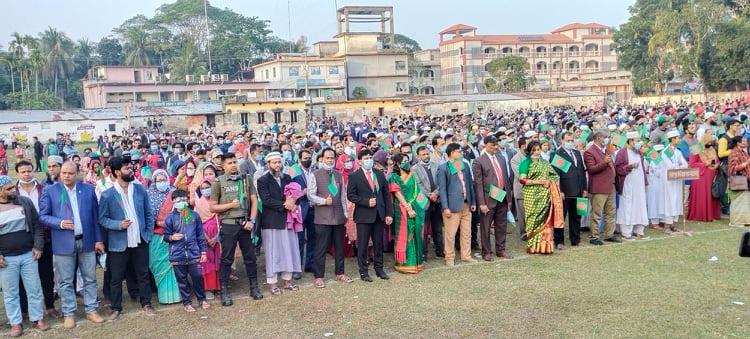

-
-
-
Home Page
-
Upazila Related
Upazila Introduction
Geographical and Economic
History-Tradition
-
Upazila Parishad
Upazila Parishad
Monthly General Meeting
Upazila Committee
-
আইনশৃঙ্খলা কমিটি
-
যোগাযোগ ও ভৌত কমিটি
-
কৃষি ও সেচ কমিটি
-
মাধ্যমিক শিক্ষা ও মাদ্রাসা
-
প্রাথমিক ও গণশিক্ষা কমিটি
-
স্বাস্থ্য ও পরিবার কল্যাণ কমিটি
-
যুব ও ক্রীড়া কমিটি
-
মহিলা ও শিশু উন্নয়ন কমিটি
-
সমাজ কল্যাণ বিষয়ক কমিটি
-
মুক্তিযোদ্ধা বিষয়ক কমিটি
-
মৎস্য ও প্রাণী সম্পদ কমিটি
-
পল্লী উন্নয়ন ও সমবায় কমিটি
-
সাংস্কৃতি কমিটি
-
বন ও পরিবেশ
-
বাজার মূল্য পর্যবেক্ষণ, মনিটর ও নিয়ন্ত্রণ কমিটি
-
অর্থ বাজেট, পরিকল্পনা ও কমিটি
-
জনস্বাস্থ্য, স্যানিটেশন ও বিশুদ্ধ পানি
Budget Workplan
সুশাসন ও জবাবদিহিতা
-
আইনশৃঙ্খলা কমিটি
-
Upazila Administration
Upazila Nirbahi Officer
Organization related
Appointments and Meetings
Services and Others
-
Government Office
Law and Order Related
Health Related
Agriculture and Food Related
Land Related
Engineering and IT
Human Resources Development Related
Education Related
-
Various Institutions
Educational Institution
- e-Services
-
Gallery
..........................
-
-
-
Home Page
-
Upazila Related
Upazila Introduction
Geographical and Economic
History-Tradition
-
Upazila Parishad
Upazila Parishad
Village Court
Monthly General Meeting
Upazila Committee
- আইনশৃঙ্খলা কমিটি
- যোগাযোগ ও ভৌত কমিটি
- কৃষি ও সেচ কমিটি
- মাধ্যমিক শিক্ষা ও মাদ্রাসা
- প্রাথমিক ও গণশিক্ষা কমিটি
- স্বাস্থ্য ও পরিবার কল্যাণ কমিটি
- যুব ও ক্রীড়া কমিটি
- মহিলা ও শিশু উন্নয়ন কমিটি
- সমাজ কল্যাণ বিষয়ক কমিটি
- মুক্তিযোদ্ধা বিষয়ক কমিটি
- মৎস্য ও প্রাণী সম্পদ কমিটি
- পল্লী উন্নয়ন ও সমবায় কমিটি
- সাংস্কৃতি কমিটি
- বন ও পরিবেশ
- বাজার মূল্য পর্যবেক্ষণ, মনিটর ও নিয়ন্ত্রণ কমিটি
- অর্থ বাজেট, পরিকল্পনা ও কমিটি
- জনস্বাস্থ্য, স্যানিটেশন ও বিশুদ্ধ পানি
Budget Workplan
সুশাসন ও জবাবদিহিতা
-
Upazila Administration
Upazila Nirbahi Officer
Organization related
Appointments and Meetings
Services and Others
-
Government Office
Law and Order Related
Health Related
Agriculture and Food Related
Land Related
Engineering and IT
Human Resources Development Related
Education Related
-
Various Institutions
Educational Institution
- e-Services
-
Gallery
..........................
Sher-e-Bangla AK Fazlul Huq's uncle's house is in Saturia village under Rajapur upazila of Jhalakathi district.
Sher-e-Bangla AK Fazlul Huq contributed to Bengali nationalism movement
In the late nineteenth century, most Hindu leaders were led by the Hindu middle class. As a result of their narrow view, Muslim communities accept religion as the main source of nationalism rather than geographical and linguistic nationalism. As a result, the main element of nationalism, the indigenous freedom is not developed among the Muslims. Even they were indifferent to mother language. Cunning English helped to create a Muslim League against the Congress to counter the nationalist movement. Muslim leaders capitalized religious and communal politics. For their backward leadership, for two centuries of the twentieth century, the 'Muslims did not return to their homeland', geographical nationalism did not appear in them. It is possible only through the return of this homeland by Fazlul Huq politically. The basic foundation of nationalism is the consciousness among the people.If there is not a great sense of unity in them, then the beginning of nationalism is not possible. AK Fazlul Huq believed that awakening among backward Muslim communities was possible through education. The expansion of education creates a strong foundation for nationalization by accelerating social progress. He created a strong educated middle class and wanted to create genuine nationalism by removing the lack of separation, deprivation, and state work of the Muslims.
In 1913, AK Fazlul Huq entered politics and engaged in spreading education in Muslim society. The educational backwardness of Muslims influenced him very much. So he repeatedly gave lecture about the spread of education among Muslims in the Bengal Legislative Assembly. The government compelled to establish educational institutions for Muslims. He facilitated the job of Muslims. As a result of the third decade of the twentieth century, a middle-class Muslim society was developing in Bengal. Along with the services of Muslim society, he was inspired by Indian nationalist ideology. In 1916, he was one of the entrepreneurs of the Lakhhen Agreement. At this time he was the leader of Indian nationalist and autonomy movement. He gave the historic speech at the Muslim League Conclave in Delhi in 1918, which made him the seat of the All India Nationalist Leader. In the 1920's he presided over the congressional conference held in Midnapore.His speech at the conference created a stir in the nationalist movement and ultimately took over the form of the freedom movement. Fazlul Huq started the movement for the abolition of zamindari system and to stop the oppression of the moneylenders. The program of his peasant-peasants association helped politically create the background of returning to the country's economic freedom struggle. There was no difference between the exploitation of the Muslim zamindars-zodder and the Hindu zamindars-the moneylenders of Muslim subjects. A new educated Muslim middle class society was formed to stand against them.They were the children of rural Bengal peasants, they would lead the peasant society, it is normal. While representing Fazlul Huq in his position and politics, while representing the masses of rural-Bengal, the Muslim League of Nawab-Nites also highlighted the nature of leadership. Although the leadership of the Muslim League spoke of the problems of the peasants, it was not possible for them to do anything other than using peasants in the interest of communal benefits only. Congress has not tried to solve the basic problem of farmers due to understanding. The role of Fazlul Huq is different from the Muslim League or the Congress. He did not want to use Muslim farmers in the name of religion just to get votes. He wanted to make pulse for farmers. By properly identifying the problem, he defines politics for dealing with him. Before Fazlul Huq, no other politician was able to drag a large number of farmers into political activities.
He brought Bengal's politics from Ahsan Manzil of Dhaka and from Chauhaddi in the city of Kolkata, on the streets of the village-Bengal field. Thus he was able to start the process of social revolution among the peasants. This is the fundamental contribution of Fazlul Huq. This phenomenon has special significance in the development of nationalism. Nationalism requires political unity among the population. It was first achieved by Fazlul Huq's efforts.Communist parties, with the scope of uneven development of the Hindu-Muslim community, then intensified to spread hatred among each other. Through reforms in agriculture and education, Sher-e-Bangla tried to eliminate existing discrimination between Hindus and Muslims. He wanted to build a strong Bengali nation through his program; But he did not achieve complete success in opposing the Congress and Muslim League, but he was able to create all elements of the formation of the nation.Later, Bangabandhu Sheikh Mujibur Rahman was able to form a Bengali nation, because Fazlul Huq was able to finish the initial work of the formation of the nation.After winning the election in 1937, Fazlul Huq wanted to form a national government with the Congress. But the effort of the non-cooperation of the central leadership of Congress failed. He was forced to form a government with the Muslim League. During this period, he had to make Muslim League communal politics in some cases. In 1937-41, Fazlul Haque was faced with the obstacle to implementing many pro-people programs for the non-cooperation of the Muslim League.He was never communal. In 1941-43, he played the role of a national leader during the cabinet period. For this reason, the Muslim League called him the congressman, the enemy of the Muslims. Fazlul Huq was a complete non-communal and symbol of Hindu-Muslim unity. So Sir Prafulla Chandra Roy said that Fazlul Huq is a pure Bangla from his hair to his nails and he is a pure Muslim.Bengali nationalism will be formed in combination with authentic Bengaliism and authentic Muslimism. The fate of the Bengali nation depends on the Hindu-Muslim unity and Fazlul Huq realized the problem of communalism in his deep. So, I saw him saying that Hindu zamindars, mahajans and Muslim zamindars, Mahajan were equally oppressed farmers and peasants. There is no communalism in his thoughts. There is scientific analysis and progressive thinking.He knew this problem and wanted to create the basis of nationalism through the unity of all the communities. Although he did not achieve complete success in the stream of communal politics on that day, he has retained the main flow of Bengali nationalism, and through his victory in the elections of 1954, he tried to lead the path of victory. On the way to victory, Sheikh Mujibur Rahman achieved success in establishing an independent Bangladesh in 1971.His historical victory was behind the contribution of the nationalist movement of Sher-e-Bangla. In fact, today's crop of nationalism created by Fazlul Huq of Bangladesh.

Planning and Implementation: Cabinet Division, A2I, BCC, DoICT and BASIS











